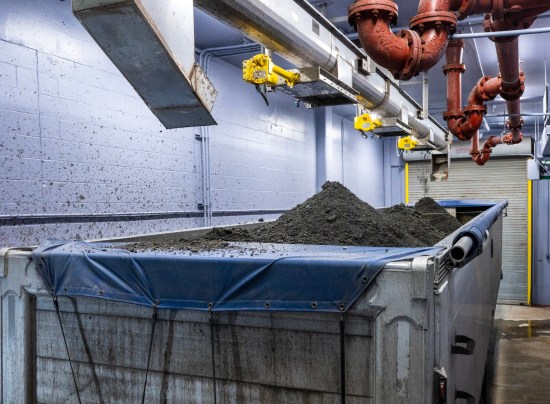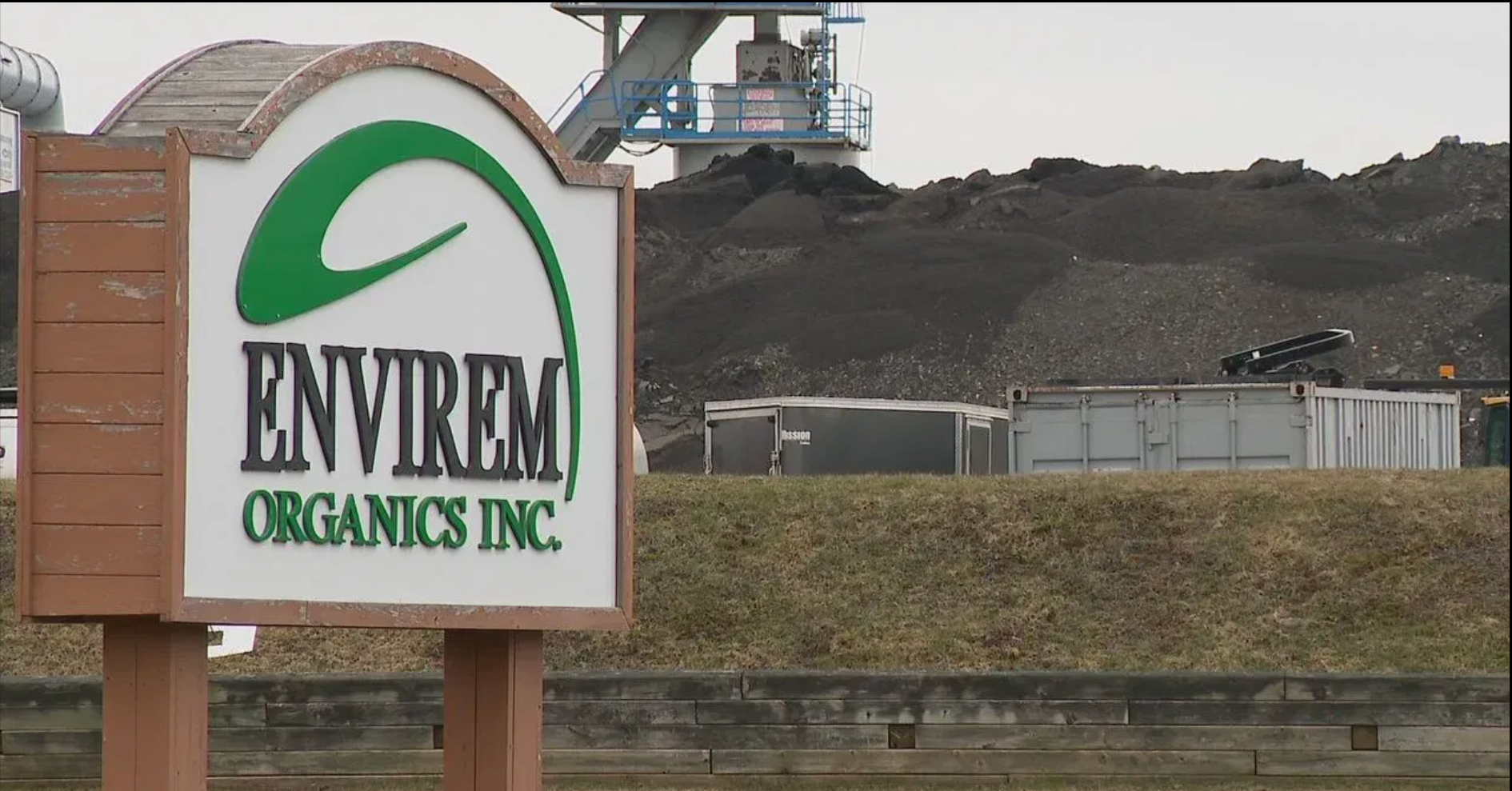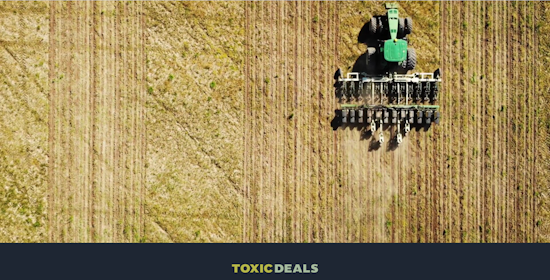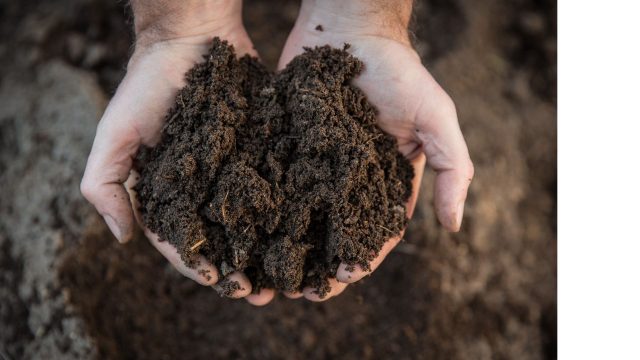
(Beyond Pesticides, July 24, 2023) Sewage sludge, also known as biosolids, is a byproduct of sewage treatment and is used as a source of organic matter for amending soil in nonorganic agriculture and landscaping. EPA has published a list of 726 chemicals found in biosolids in the National Sewage Sludge Surveys. This list does not include the per- and polyfluoroalkyl substances (PFAS), which are emerging contaminants of biosolids.
In addition to PFAS (also referred to as “forever chemicals”), persistent toxic pollutants found in biosolids include: inorganic chemicals such as metals and trace elements; organic chemicals such as polychlorinated biphenyls or PCBs, dioxins, pharmaceuticals, and surfactants; and pathogens including bacteria, viruses, and parasites. Regulation of biosolids by the U.S. Environmental Protection Agency (EPA) has been found by the EPA Office of Inspector General (OIG), in its report EPA Unable to Assess the Impact of Hundreds of Unregulated Pollutants in Land-Applied Biosolids on Human Health and the Environment, to be inadequate. Lacking sufficient oversight at the federal level, action to protect health and the environment falls to the states and local jurisdictions.
Here are the conclusions of OIG:
“The EPA’s controls over the land application of sewage sludge (biosolids) were incomplete or had weaknesses and may not fully protect human health and the environment. The EPA consistently monitored biosolids for nine regulated pollutants. However, it lacked the data or risk assessment tools needed to make a determination on the safety of 352 pollutants found in biosolids. The EPA identified these pollutants in a variety of studies from 1989 through 2015. Our analysis determined that the 352 pollutants include 61 designated as acutely hazardous, hazardous or priority pollutants in other programs.
The Clean Water Act requires the EPA to review biosolids regulations at least every 2 years to identify additional toxic pollutants and promulgate regulations for such pollutants. Existing controls based on the Clean Water Act and the EPA’s Biosolids Rule include testing for nine pollutants (all heavy metals), researching for additional pollutants that may need regulation, reducing pathogens and the attractiveness of biosolids to potential disease-carrying organisms, and conducting compliance monitoring activities. The EPA’s risk communication regarding biosolids should also be transparent.
The EPA has reduced staff and resources in the biosolids program over time, creating barriers to addressing control weaknesses identified in the program. Past reviews showed that the EPA needed more information to fully examine the health effects and ecological impacts of land-applied biosolids. Although the EPA could obtain additional data to complete biosolids risk assessments, it is not required to do so. Without such data, the agency cannot determine whether biosolids pollutants with incomplete risk assessments are safe. The EPA’s website, public documents and biosolids labels do not explain the full spectrum of pollutants in biosolids and the uncertainty regarding their safety. Consequently, the biosolids program is at risk of not achieving its goal to protect public health and the environment.”
Despite OIG’s recommendation that EPA disclose to the public the fact that the chemicals in biosolids are not fully evaluated for safety and therefore safety claims, or implications of safety, are fraudulent, EPA continues to mislead the public. The OIG’s recommendation stated, “Change the website response to the question “Are biosolids safe?” to include that the EPA cannot make a determination on the safety of biosolids because there are unregulated pollutants found in the biosolids that still need to have risk assessments completed. This change should stay in place until the EPA can assess the risk of all unregulated pollutants found in biosolids.” However, EPA’s website does just the opposite with the following language: “Pollutants found in biosolids will vary depending upon inputs to individual wastewater treatment facilities over time. The presence of a pollutant in biosolids alone does not mean that the biosolids pose harm to human health and the environment.” Rather than alerting the public to the fact that full information is not available on the hazard of toxic chemical residues in biosolids, as recommended by OIG, the agency is telling the public that findings of residues does not indicate a threat to health.
Land application of biosolids to farms and landscapes is considered the standard means of “disposal.” Chemicals such as PFAS have been found to migrate into food when grown in farms using contaminated biosolids. Over 60% of biosolids are used in crops, and the contaminants in them make their way to our food and water. But if biosolids are used in landscaping, the contaminants pose a hazard to landscapers and those using athletic fields. In view of EPA’s failure to provide comprehensive identification, regulation, and elimination of potential contaminants, the biosolids themselves must be tested to ensure safety. Biosolids should be tested to ensure that they do not cause acute toxicity, cancer, genetic mutations, birth defects, reproductive or developmental effects, neurotoxicity, endocrine disruption, or immune system effects. Otherwise, they should not be used on farms or landscapes.
read the full article
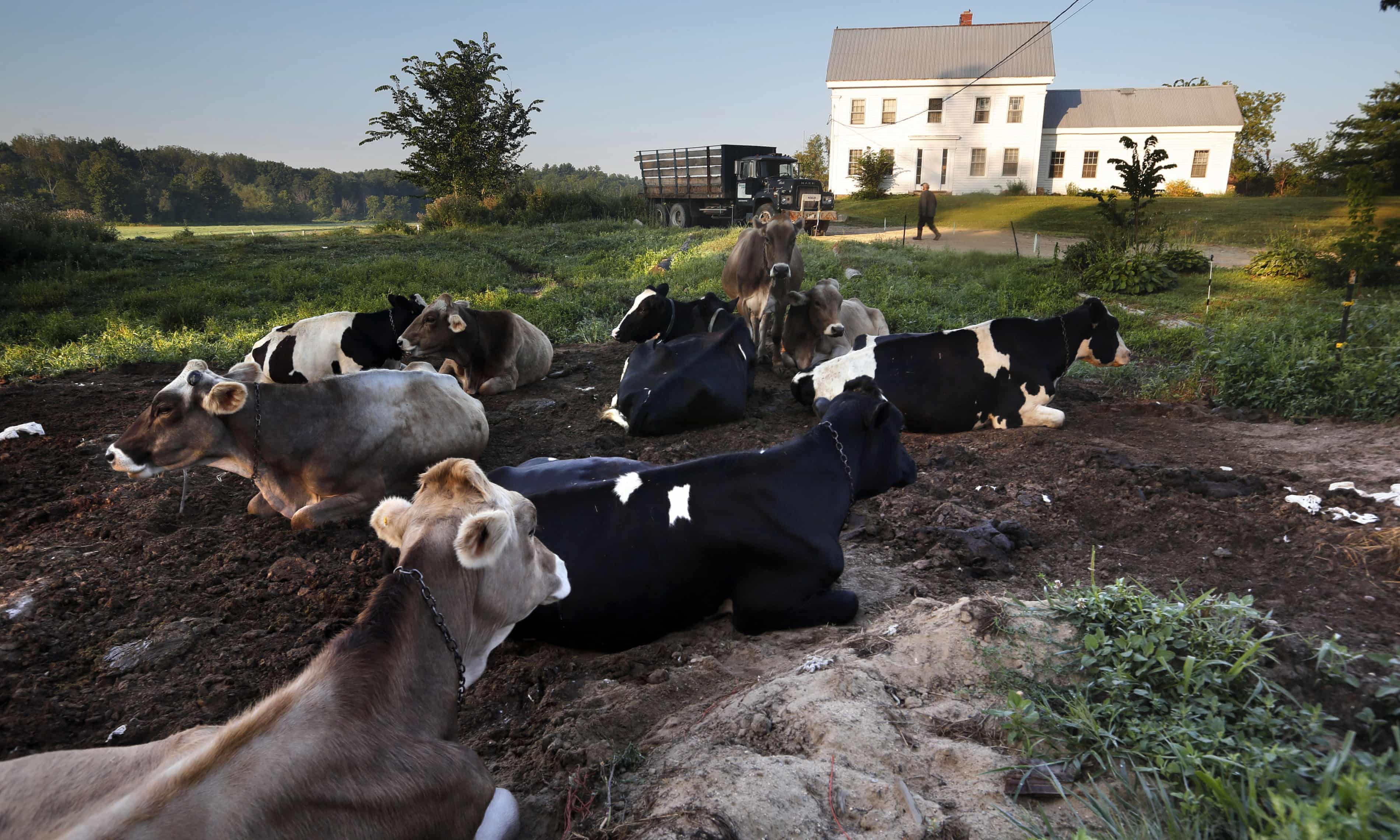 Dairy cows rest outside the home of Fred and Laura Stone at Stoneridge Farm in Arundel, Maine. The farm was forced to shut down after sludge spread on the land was linked to high levels of PFAS in the milk. Photograph: Robert F Bukaty/AP
Dairy cows rest outside the home of Fred and Laura Stone at Stoneridge Farm in Arundel, Maine. The farm was forced to shut down after sludge spread on the land was linked to high levels of PFAS in the milk. Photograph: Robert F Bukaty/AP


